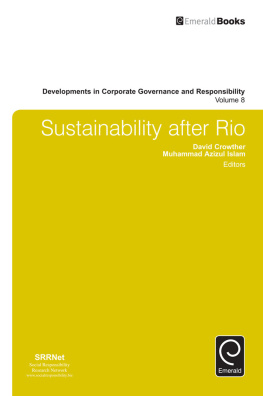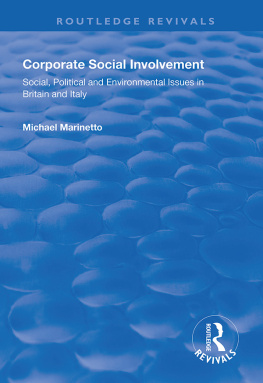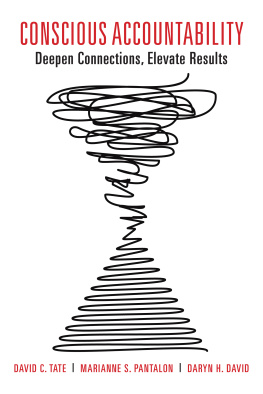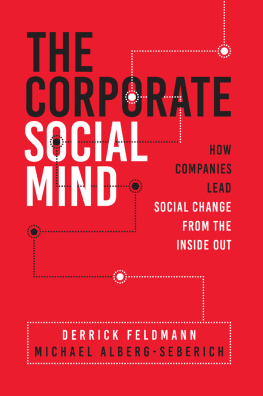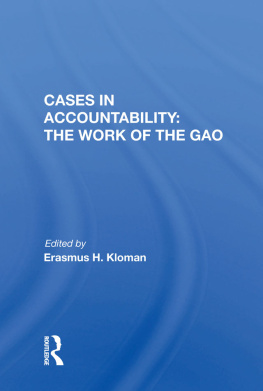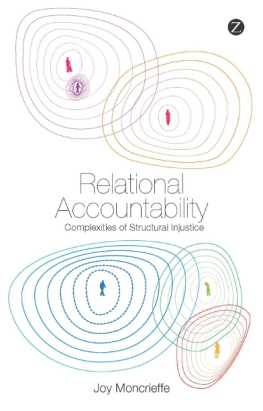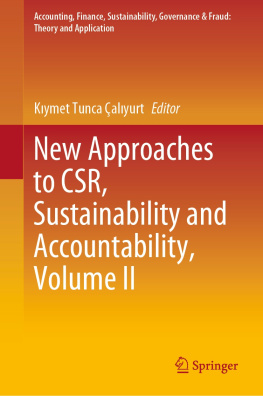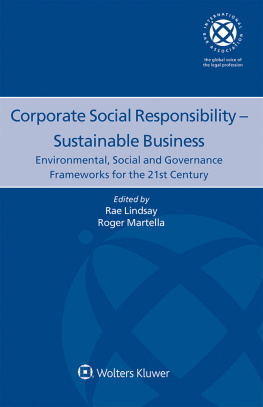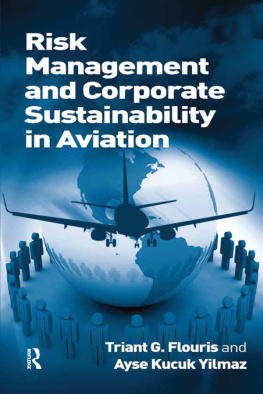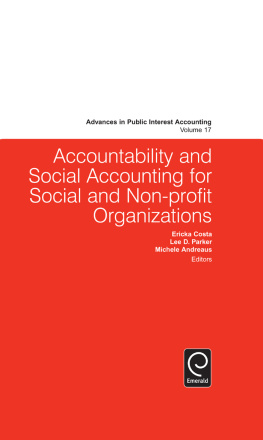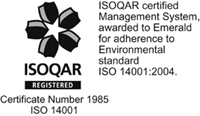CONTENTS
PART I
THE TRIPLE BOTTOM LINE
Shamima Haque
James Hazelton
Michelle V. Stirk
Ameeta Jain and Muhammad Azizul Islam
Lee Moerman and Sandra van der Laan
PART II
CORPORATE SOCIAL RESPONSIBILITY
Ghulam Sughra and David Crowther
Joseph K. Achua and David A. Utume
Muhammad Azizul Islam, Annette Quayle and Shamima Haque
PART III
GOVERNANCE
Roopinder Oberoi
Shahla Seifi and David Crowther
Rute Abreu and Ftima David
SUSTAINABILITY AFTER RIO
DEVELOPMENTS IN CORPORATE GOVERNANCE AND RESPONSIBILITY
Series Editor: David Crowther
Recent Volumes:
Volume 1: | NGOs and Social Responsibility |
Volume 2: | Governance in the Business Environment |
Volume 3: | Business Strategy and Sustainability |
Volume 4: | Education and Corporate Social Responsibility: International Perspectives |
Volume 5: | The Governance of Risk |
Volume 6: | Ethics, Governance and Corporate Crime: Challenges and Consequences |
Volume 7: | Corporate Social Responsibility in the Digital Age |
DEVELOPMENTS IN CORPORATE GOVERNANCE AND RESPONSIBILITYVOLUME 8
SUSTAINABILITY AFTER RIO
EDITED BY
DAVID CROWTHER
De Montfort University, UK
MUHAMMAD AZIZUL ISLAM
Queensland University of Technology, Australia


United Kingdom North America Japan
India Malaysia China
Emerald Group Publishing Limited
Howard House, Wagon Lane, Bingley BD16 1WA, UK
First edition 2015
Copyright 2015 Emerald Group Publishing Limited
Reprints and permissions service
Contact:
No part of this book may be reproduced, stored in a retrieval system, transmitted in any form or by any means electronic, mechanical, photocopying, recording or otherwise without either the prior written permission of the publisher or a licence permitting restricted copying issued in the UK by The Copyright Licensing Agency and in the USA by The Copyright Clearance Center. Any opinions expressed in the chapters are those of the authors. Whilst Emerald makes every effort to ensure the quality and accuracy of its content, Emerald makes no representation implied or otherwise, as to the chapters suitability and application and disclaims any warranties, express or implied, to their use.
British Library Cataloguing in Publication Data
A catalogue record for this book is available from the British Library
ISBN: 978-1-78560-445-4
ISSN: 2043-0523 (Series)
LIST OF CONTRIBUTORS
Rute Abreu | Research Unit for Inland Development, Polytechnic Institute of Guarda, Portugal |
Joseph K. Achua | Department of Accounting, Benue State University, Nigeria |
David Crowther | De Montfort University, UK; London School of Commerce, UK; Chair of the Social Responsibility Research Network, UK |
Ftima David | Research Unit for Inland Development, Polytechnic Institute of Guarda, Portugal |
Shamima Haque | Queensland University of Technology, Australia |
James Hazelton | Department of Accounting and Corporate Governance, Macquarie University, Australia |
Muhammad Azizul Islam | School of Accountancy, Queensland University of Technology, Australia |
Ameeta Jain | Deakin Business School, Department of Finance, Deakin University, Geelong, Australia |
Lee Moerman | School of Accounting, Economics and Finance, University of Wollongong, Australia |
Roopinder Oberoi | Kirori Mal College, University of Delhi, India |
Annette Quayle | School of Accountancy, Queensland University of Technology, Australia |
Shahla Seifi | Seifi Crowther Consulting, UK |
Michelle V. Stirk | De Montfort University, UK |
Ghulam Sughra | London School of Commerce, UK |
David A. Utume | Department of Political Science, Benue State University, Nigeria |
Sandra van der Laan | University of Sydney, Australia |
INTRODUCTION: SUSTAINABILITY RECONSIDERED
THE BRUNDTLAND REPORT
In 1983 the United Nations established the under the chairmanship of Gro Harlem Brundtland. It subsequently became known as the Brundtland Commission and its report, Our Common Future, is normally known as the Brundtland Report. The commission was created to address a growing concern about the accelerating deterioration of the human environment and natural resources and the consequences of that deterioration for economic and social development. In establishing the commission, the UN General Assembly recognised that environmental problems were global in nature and determined that it was in the common interest of all nations to establish policies for sustainable development. It is important to note that it was unquestioned that sustainable development was both desirable and possible.
In 1983 the UN General Assembly passed the Resolution 38/161, Process of preparation of the Environmental Perspective to the Year 2000 and Beyond establishing the Commission. In A/RES/38/161, the General Assembly:
8. Suggests that the Special Commission, when established, should focus mainly on the following terms of reference for its work:
(a) To propose long-term environmental strategies for achieving sustainable development to the year 2000 and beyond;
(b) To recommend ways in which concern for the environment may be translated into greater co-operation among developing countries and between countries at different stages of economic and social development and lead to the achievement of common and mutually supportive objectives which take account of the interrelationships between people, resources, environment and development;
(c) To consider ways and means by which the international community can deal more effectively with environmental concerns, in the light of the other recommendations in its report;
(d) To help to define shared perceptions of long-term environmental issues and of the appropriate efforts needed to deal successfully with the problems of protecting and enhancing the environment, a long-term agenda for action during the coming decades, and aspirational goals for the world community, taking into account the relevant resolutions of the session of a special character of the Governing Council in 1982.
The Report of the Brundtland Commission, called Our Common Future, was published by Oxford University Press in 1987. The report deals primarily with sustainable development and the change of politics needed for achieving that. The definition of this term in the report is very well known and often cited as sustainable development is development that meets the needs of the present without compromising the ability of future generations to meet their own needs.

